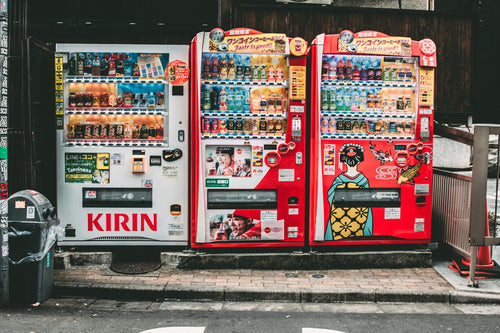
Japan Travel Entry Requirements for 2024
As we approach 2024, Japan remains a top travel destination, with its stunning landscapes, rich history, and vibrant urban life attracting visitors from around the globe. Whether you're planning a vacation, business trip, or cultural exploration, knowing the latest entry requirements is crucial for a smooth journey. This guide provides an up-to-date overview of Japan’s 2024 travel entry requirements, covering essential documentation, visa guidelines, health regulations, and more to help you prepare effectively.
Contents
3. COVID-19 and Health Regulations
4. Customs Declarations and Prohibited Items
6. Currency and Financial Documentation
1. Passport Requirements
To enter Japan, all foreign visitors must present a valid passport. For most nationalities, the passport must be valid for the duration of your stay. However, some nationalities may require at least six months of validity beyond the intended departure date. It's recommended to verify your passport’s validity and ensure it has at least one blank page for entry and exit stamps. Additionally, making photocopies or keeping digital backups of your passport can be useful in case of loss or theft.
2. Visa Requirements
Visa requirements for Japan depend on your nationality, travel purpose, and duration of stay. Many countries, including the United States, Canada, Australia, and EU nations, enjoy visa exemptions for short-term tourism or business visits, typically up to 90 days. However, if your nationality requires a visa or if you plan to stay longer than the permitted period, you must apply in advance through a Japanese embassy or consulate.
For travelers needing a visa, common requirements include a completed application form, passport-sized photos, and proof of sufficient financial means. If visiting friends or relatives, a letter of invitation may be required. For longer stays, work, or study purposes, ensure you have the appropriate visa category and documents prepared.
3. COVID-19 and Health Regulations
As of 2024, Japan may still have some COVID-19 regulations in place for travelers, depending on global health trends. It’s essential to check Japan’s Ministry of Health, Labour, and Welfare website for the latest updates on COVID-19 entry requirements, including vaccination proof, potential PCR test requirements, or quarantine guidelines.
For those required to provide proof of vaccination, ensure your documentation includes necessary details such as the date, vaccine type, and the issuing authority. Digital certificates or apps may be accepted, but it’s always advisable to carry a printed copy as well.
4. Customs Declarations and Prohibited Items
All visitors to Japan are required to complete a customs declaration upon entry. Japan has strict regulations on certain items, including prohibited or restricted items like fresh produce, certain types of medication, and firearms. It’s recommended to review Japan’s customs website for an updated list of prohibited items and requirements for importing prescription medications.
If you plan to bring prescription medication, ensure it complies with Japanese regulations. Some drugs that are legal elsewhere, including certain stimulants and narcotics, are prohibited in Japan. For permitted medications, bring a prescription or medical certificate from your doctor. In some cases, you may need to apply for an import certificate in advance.
5. Travel Insurance
While travel insurance is not mandatory for entry into Japan, it is highly recommended. Medical treatment in Japan can be expensive, and having a comprehensive travel insurance policy covering medical expenses, emergency evacuation, and trip cancellations can provide peace of mind. Many insurance providers offer coverage specifically tailored for Japan, including coverage for sports like skiing if you plan to visit during winter.
Additionally, some insurance policies may include COVID-19 coverage, which can be useful in case of unexpected delays or medical issues related to the pandemic. Be sure to carry both digital and printed copies of your insurance policy to easily access coverage details if needed.
6. Currency and Financial Documentation
Japan remains a cash-friendly society, and having Japanese yen (JPY) on hand is essential, particularly for rural areas or small businesses that may not accept cards. It’s a good idea to exchange some currency before you arrive or withdraw yen from ATMs at the airport.
Ensure your credit or debit cards are set up for international transactions. Some travelers may also bring financial proof, such as recent bank statements, as immigration officers may occasionally request proof of sufficient funds for your stay. Although this is not always required, having these documents accessible can smooth your entry if asked.
7. Emergency Contacts and Embassy Information
Keeping a list of emergency contacts is a wise step for any traveler. This should include contact details for family or friends, as well as your country’s embassy or consulate in Japan. In case of lost documents or other emergencies, your embassy can provide assistance. Be sure to also familiarize yourself with Japan’s emergency numbers: 110 for police and 119 for fire and ambulance services.
Having this information on hand, whether digitally or printed, can help you stay prepared for unexpected situations and ensure you have support available if needed.
8. Tips for a Smooth Entry
Double-Check Entry Requirements: Regulations can change, so it’s advisable to check Japan’s immigration and health requirements close to your departure date.
Keep Your Documents Organized: Have your passport, visa (if required), and COVID-19 documents in an easily accessible place to streamline the entry process.
Stay Updated on Customs Rules: Familiarize yourself with Japan’s customs regulations to avoid issues with restricted items and prescription medications.
Prepare Local Currency: Exchange some cash or locate an ATM at the airport to ensure you have yen available upon arrival.
Conclusion
By understanding and preparing for Japan’s entry requirements in 2024, you’ll ensure a smoother arrival and a more enjoyable journey. From passport and visa regulations to COVID-19 guidelines and customs rules, having the right documents and staying informed about the latest requirements is essential for any traveler. With these preparations in place, you can focus on experiencing the beauty and culture of Japan to the fullest. Safe travels!
分享
You may also like
-

探索日本卡拉 OK 文化:8 個最佳唱歌地點
卡拉 OK 是日本文化不可或缺的一部分,為朋友、家人甚至同事提供了一種有趣的放鬆方式。卡拉OK(意為「空管弦樂團」)起源於日本,現已發展成為適合所有年齡層和背景的全民消遣活動。日本卡拉 OK 場所以其私人房間、先進的音響系統和豐富的歌...
-

日本自動販賣機提供的 10 種獨特飲品值得嘗試
日本以其自動販賣機而聞名,提供種類繁多的飲料,而不僅僅是軟性飲料和瓶裝水。從獨特的口味到創新的飲料,日本的自動販賣機為遊客和當地人帶來了許多驚喜。本指南探討了 10 種只能在日本自動販賣機中找到的獨特飲料,每種飲料都有其獨特的風味、文...
-

什麼是清酒?其製作方法及歷史
清酒是一種由發酵米製成的傳統日本酒精飲料。它在日本已有一千多年的歷史,並因其獨特的風味和文化意義而在全世界流行。在本文中,我們將探討清酒是什麼、它是如何釀造的,以及這種深受喜愛的飲料背後的迷人歷史。 本指南將帶您了解清酒的基本面,...
-

東京附近8處風景優美的溫泉
東京是個繁華的大都市,但城外卻有一些日本最寧靜的溫泉,提供令人驚嘆的美景,讓您有機會在大自然中放鬆身心。無論是坐落在茂密的森林中、海岸邊或山區,這些溫泉都是逃離城市喧囂的完美場所。以下是東京附近 8 個風景最美的溫泉。 內容 ...




